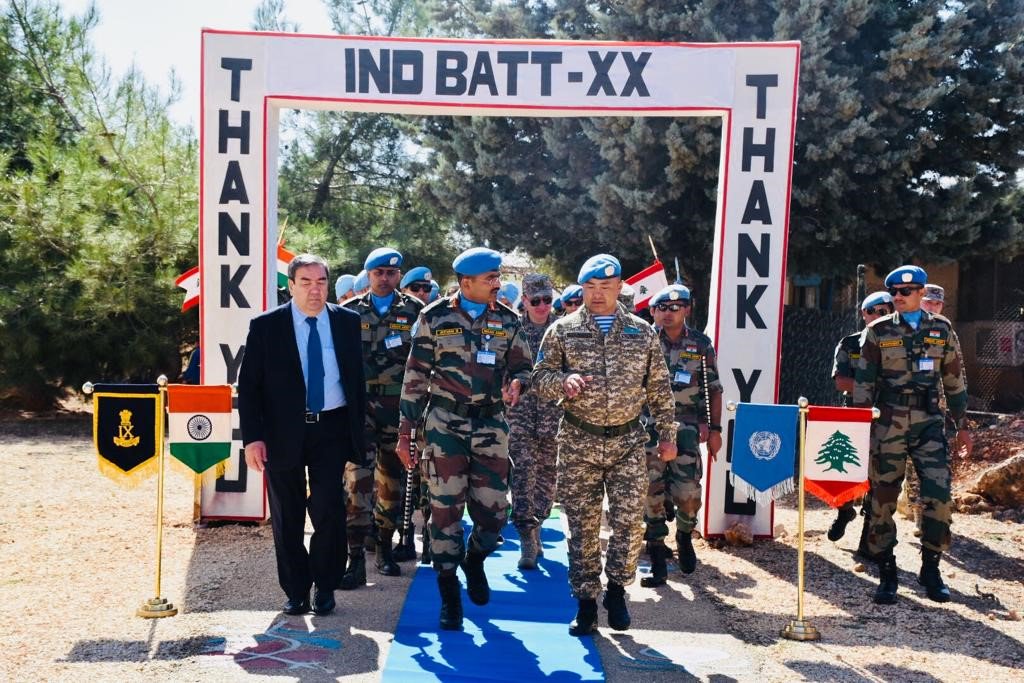
Aditi Bhaduri
The year 2025 has begun with great uncertainty. Wars rage on three continents and conflicts and churning have been happening on India's periphery. In this gloomy scenario, some countries stand out for their dynamism and the hope they promise. Kazakhstan is such a place.
Recently, reports say that Kazakhstan – a secular country with 69 percent Muslims - has emerged as one of the top destinations for Indian tourists. Yet, there is a lack of focus the country deserves for the many strides it has made within a short period since its independence in 1992.
In this context, it is important to mention the recent interview of Kazakhstan's President Kassym-Jommart Tokayev with the Kazakh publication Ana Tili.
The detailed open nature of the interview itself is important. Questions ranged from Kazakhstan's economic and foreign policy to natural disasters to youth, and even criticism of the government. This reflects openness, transparency, and people's participation in governance. The president patiently and in detail answered all the questions. This communication between the people and the president shows the trust, confidence, and openness with which Kazakhstan is governed.
Next, the interview itself with all the information and statistics was in essence a record of the past year and Kazakhstan's achievements and lapses. At the same time, it set the roadmap for the 2025. This points to the openness of the government to the people of Kazakhstan.
The many achievements of Kazakhstan during the previous year are simply breathtaking. This is particularly extraordinary given the difficult geopolitical situation in the world, especially the Ukraine war which in many ways directly affects the country as it shares its longest land border with Russia. Moreover, in January 2022, Kazakhstan had even faced a couple-like situation with unprecedented violence. Apart from this the country also faced unprecedented floods in 2024, and more recently an Azerbaijan Airlines plane crashed on the Kazakh territory, killing 38 passengers on board.
Here are a few instances of what Kazakhstan has achieved in the previous years:
Around 18 million square meters of housing were completed, and 7,000 kilometers of highways were built or repaired. New passenger terminals were inaugurated at the airports in Almaty, Kyzylorda, and Shymkent. Large-scale projects were implemented in the mining, petrochemical, and metallurgical industries. The agricultural sector achieved a record harvest of nearly 27 million tons of grain—the highest in the past decade. The National Infrastructure Plan through 2029 was adopted, outlining more than 200 projects with a total investment exceeding 40 trillion tenge. Kazakhstan attracted $15.7 billion in foreign direct investment for new projects in 2024, marking an 88% increase compared to the previous year.
 Joint Military exercise by the Militaries of India and Kazakhstan in Rajasthan
Joint Military exercise by the Militaries of India and Kazakhstan in Rajasthan
This is a remarkable fear for the country. Along with the above, Kazakhstan is also making strides in being a social state and ensuring social security for its citizens, while promoting the rule of law and fighting corruption.
For instance, pensions, allowances, scholarships, and salaries for civil servants were increased. The legal foundation for the “Keleshek” (Future) voluntary savings system has been laid, and accumulated funds can be used for education in Kazakhstan and abroad, as well as for purchasing housing. A law to reduce citizens’ indebtedness has also been enacted.
By 2029, it is planned to provide rental housing to 10,000 families annually. The national project “Modernization of Rural Healthcare” continues, with medical facilities being constructed in rural areas. The construction of 217 modern schools with a combined capacity for 460,000 students is planned, with 105 schools already completed.
Hundreds of new schools, kindergartens, and sports centers were built nationwide. More than ten branches of leading foreign universities were established. Funding for science was increased.
The law on women’s rights and child safety was adopted to eradicate domestic violence. Punishments for any form of violence against women and children have been toughened. Life imprisonment is now imposed for the murder or rape of a minor, and administrative responsibility has been introduced for bullying minors for the first time.
At the same time efforts to fight corruption resulted in the reclamation of more than 2 trillion tenge (4.1 billion USD) since 2022, which had been illegally acquired financial and other assets, These funds are being used to build schools, develop critical infrastructure, and address other social needs.
Kazakhstan's multi-vector foreign policy is also laudable, pointing to an autonomous pursuance of foreign policy, cultivating good relations with all sides. The President outlined the primary importance of three countries for Kazakhstan: Russia, the US, and China. Despite the complexities of the relations of the US with both Russia and China, Kazakhstan is determined to pursue relations with all of them as that serves Kazakhstan's interests.
As a middle power, Kazakhstan is determined to play its role in the international community at a critical time when many changes in the world order are taking place with major new alignments and realignment taking shape.
 Kazakhstan and Indian peacekeeper working together under the UN mandated mission
Kazakhstan and Indian peacekeeper working together under the UN mandated mission
This is why relations with India are important. The two countries enjoy a strategic partnership with many high-profile bilateral visits. Prime Minister Narendra Modi visited Kazakhstan twice - in 2915 and 2017. Current President Kassym-Jomart Tokayev participated in the First India Central Asia Summit in virtual format hosted by India on 27 January 2022, which coincided with the 30th Anniversary of the establishment of diplomatic relations between India and Central Asian countries.
Another major area of cooperation between the two countries is defense. Bilateral defense cooperation currently comprises military-technical cooperation, military education and training, joint exercises, bilateral visits, etc. Since 2021 the two countries have participated in joint defense exercises which alternates on the territory of each. The last exercise "Kaz*nd 2024" took place in India last year.
Yet another significant area of cooperation has been in UN peacekeeping. In 2018, India and Kazakhstan agreed to deploy a Kazakh contingent under the Indian Battalion at UNIFIL, Lebanon. About 530 Kazakh armed forces personnel have participated in the mission so far.
The two countries cooperate regularly within the multilateral forum of the United Nations and the Shanghai Cooperation Organization. India and Kazakhstan are on the same page in many global and regional issues, including Afghanistan. This is particularly important given India's recent outreach to the Taliban.
ALSO READ: Why India is close to Armenia and Pakistan to Azerbaijan
Most important, however, is the internal stability that Kazakhstan enjoys as a pluralistic, multi-confessional state. This makes it a valuable partner for India a fissures world.
Aditi Bhaduri is an independent journalist with expertise in Middle-East and Central Asian affairs
